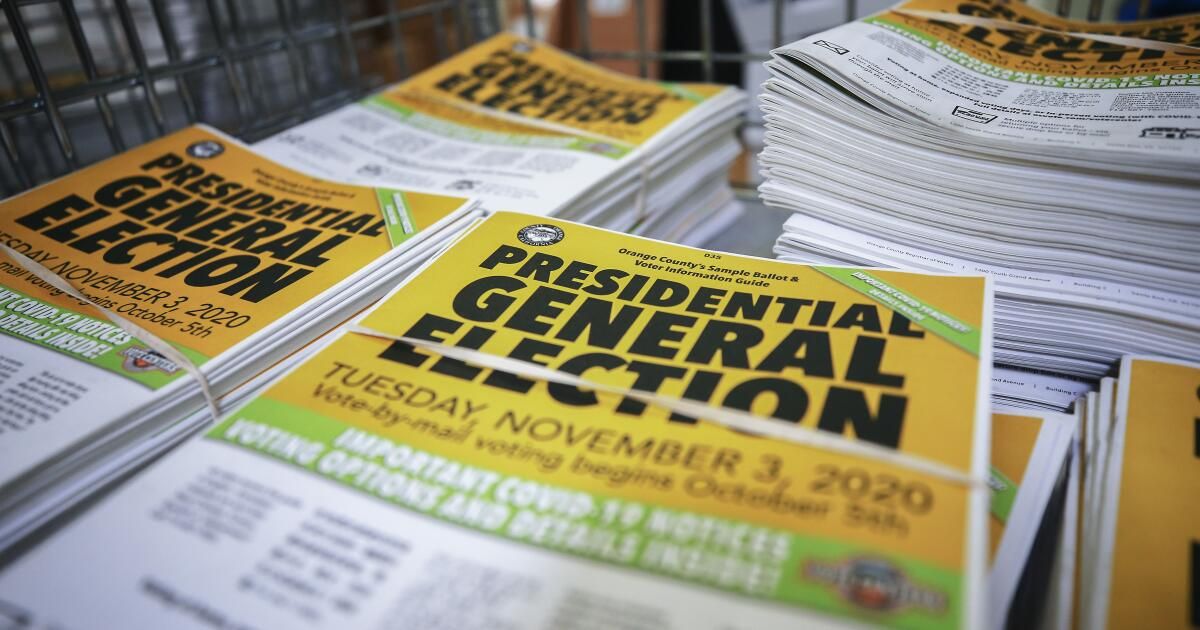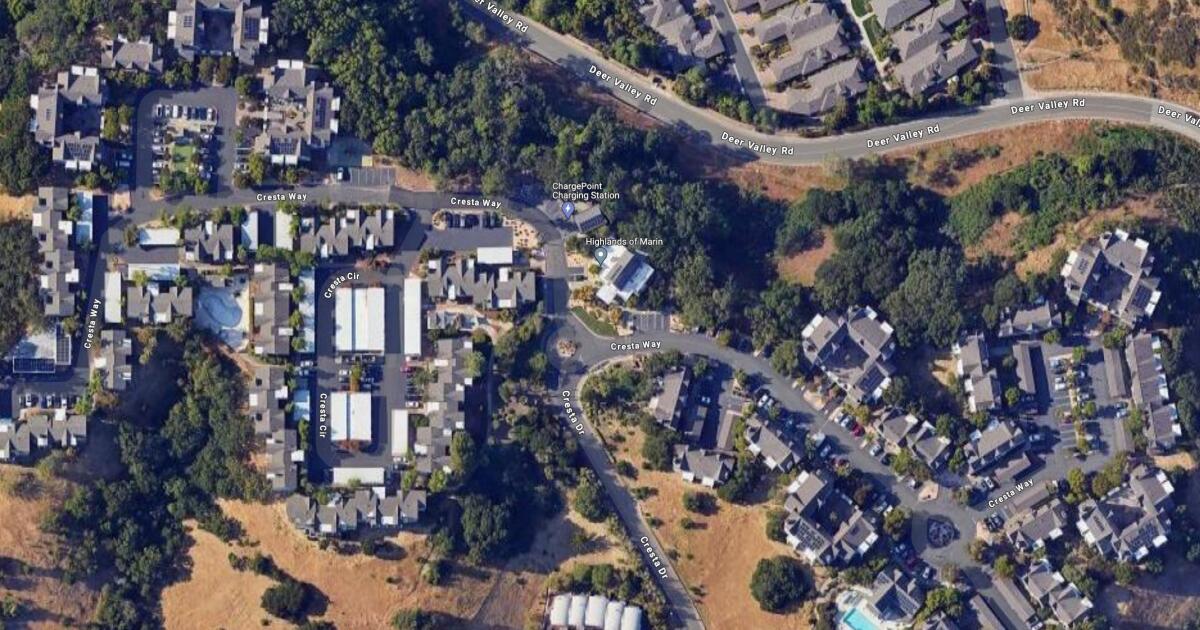In California, where a ballot often contains pages of candidates and ballot measures, most voters rely on guidance provided by the state for election information, according to a new survey. But with so much at stake, Californians also seek information on a variety of other channels, including social media, even though many say it is an unreliable source.
The UC Berkeley Institute of Government Studies found that 58% of voters turn to official election guides, 40% to newspapers or magazines, 39% to search engines like Google, and 32% to social media sources to their electoral investigations. YouTube is the most cited social media source for election-related news, followed by Facebook, Instagram, X (formerly known as Twitter) and TikTok, according to the report.
However, despite their affinity for these apps, 60% of voters who receive election-related news from all social media sources say they believe misinformation on those same sources is a major problem. An additional 22% say it is a minor problem.
“More than 80% of Californians who receive news through social media fear that what they see is not truthful or accurate. Our information ecosystems are in danger and everyone knows it,” Jonathan Mehta Stein, executive director of California Common Cause, said in a statement. “These hugely powerful technologies that shape much of our lives and our democratic conversation should be governed by a broader range of stakeholders, including government, civil society and industry, to operate in our collective interests.”
The survey found that older voters are more likely to rely on official and traditional sources for information – such as the electoral guide, newspapers and television – while younger voters tend to turn to social networks, search engines such as Google and your family and friends.
Instagram is the most popular social media option among young voters. The survey found that 44% of 18- to 29-year-olds use the app to receive election-related news, followed by 41% on YouTube and 37% on TikTok. Only 15% of people between 50 and 64 years old and 6% of people 65 years old and older use Instagram for the same purpose.
The survey focused on TikTok, which the US government has recently scrutinized for its association with the Chinese government. In April, President Biden signed a law that would ban the app in the United States unless an American company took ownership of it. The news quickly sparked anger among young Americans who frequently use TikTok. The IGS survey found that 59% of 18- to 29-year-olds report browsing TikTok. Black Californians use the app more than other ethnic groups: 58%, followed by Latinos at 51%.
Jacquelyn Mason, interim executive director of the Media Democracy Fund, said the deterioration of local and ethnic media, as well as the way online platforms “deprioritize news as political,” are pushing people to seek less sources of information. reliable.
“This really leaves primarily people of color, immigrants, and non-English speakers to seek information about their interests and communities on social media, which leaves them very likely to be exposed to more misinformation and disinformation,” he said.
“If we care about ensuring that voters in all communities have access to the information they need and the information they trust during this election, then we need to stop disinformation campaigns and inoculate people against them. We know that misinformation campaigns target communities of color, so foundations need to invest in those communities to help them fight back,” said Josh Stearns, senior director of the Democracy Fund's Public Plaza Program, in a statement.
“Tech platforms have a huge role to play, but until they get serious about fighting misinformation, the best solutions are driven by people: organizers, journalists, trusted messengers,” he added.
Californians overwhelmingly support the impending US ban on TikTok – 57%, according to the poll. But support drops to 23% among those who use TikTok very frequently.
“[Non-users] They pretty much support what the government is doing, because they care about the problems that exist,” DiCamillo said. “That the Chinese government could be using algorithms to shape what people see, or could be accessing significant amounts of personal information. And there are concerns – legitimate concerns – about them, at least among California voters.”
The survey, which was funded by the Evelyn and Walter Haas Jr. Fund, surveyed 5,095 registered voters across California in English, Spanish, Chinese, Vietnamese and Korean.












